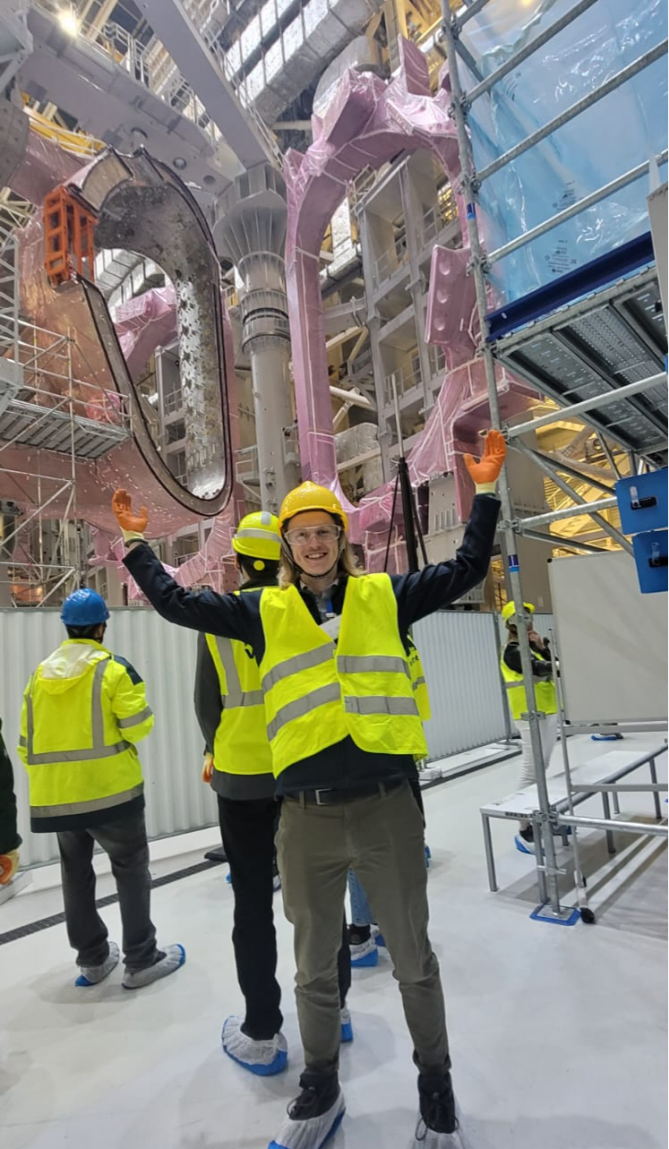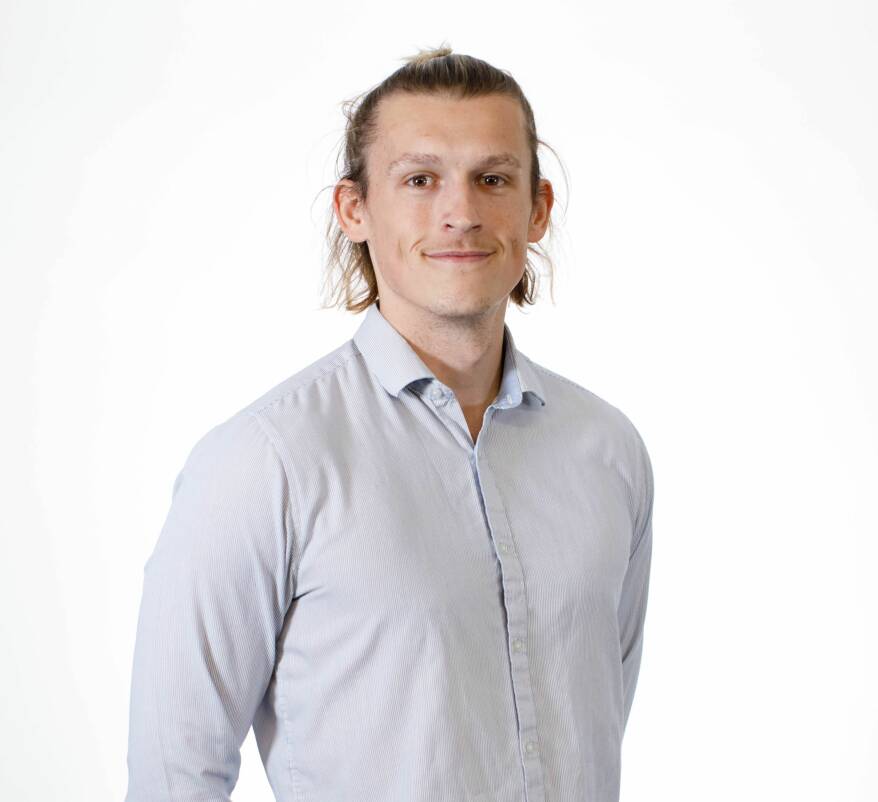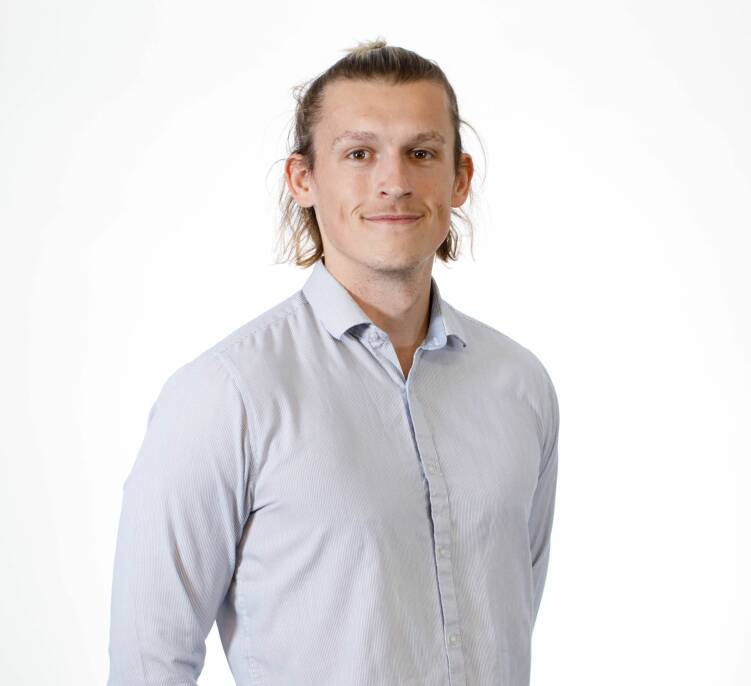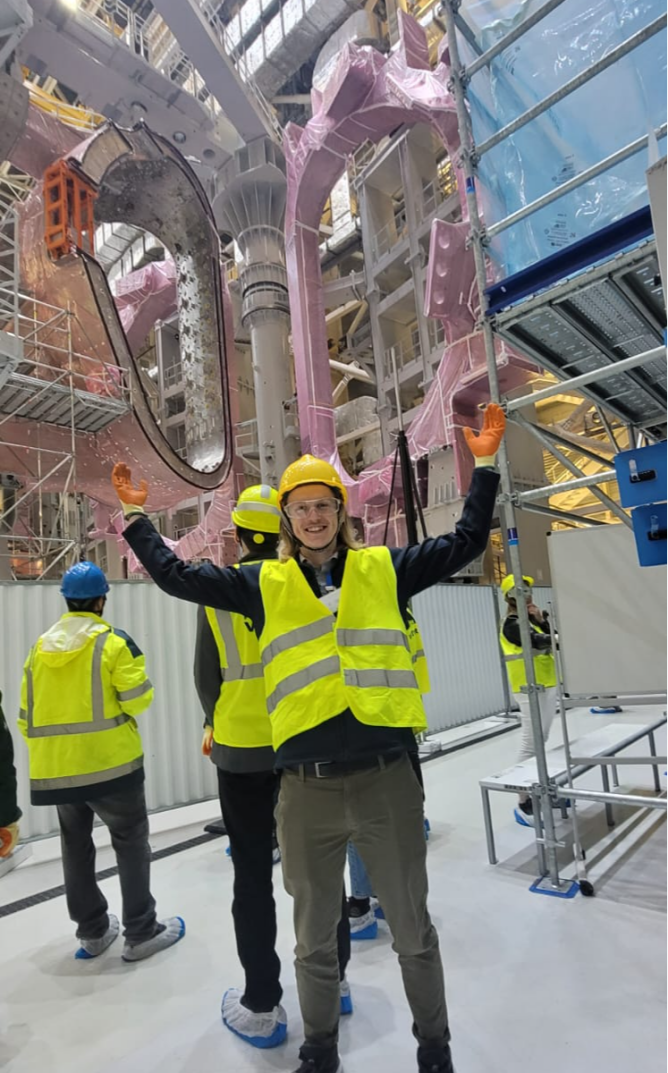
(Recovery of Radioactive Volatiles from Waste), funded by the Knowledge Asset Grant Fund scheme. We are partnering with Thermachange and Galson Sciences to build on our world-leading detritiation technology and address broader nuclear industry issues, such as the treatment of radioactive waste containing asbestos.
This project also ties in with the NDA innovation partnership, which looks into radioactive asbestos wastes at legacy nuclear fission sites in the UK. UKAEA is acting as a subject matter expert as part of the REACT-2 project. We provide our waste treatment expertise to solve this wide-ranging issue, and I'm excited to work more closely with the wider industry.
Can you elaborate on the recovery waste project and its significance?
RoRVA (Recovery of Radioactive Volatiles from Waste) builds on our expertise in detritiation, using our technology to investigate the treatment of radioactive waste contaminated with asbestos, and includes research into the wider issue of asbestos wastes in the UK nuclear industry and waste treatment mechanisms such as dichlorination and decarbonation. UKAEA is a world-leader in dealing with tritium and this expertise can help in broader applications. This project, along with our work with the NDA innovation partnership, showcases our ability to work with the industry to help tackle difficult radioactive waste challenges.
From your perspective why is collaborative working important?
Collaborative working is important because it allows knowledge sharing in both directions. Not only do we develop our understanding internally to improve our materials detritiation facility and tritium analysis laboratory capabilities, but this information sharing also helps to foster a community of experts outside of the business and accelerates the development of tritium fuel cycle solutions.
Collaboration offers numerous benefits. Internally, it allows us to leverage the extensive expertise within UKAEA, from waste management to tritium handling. Externally, it provides fresh perspectives and innovative solutions from other companies or industries. Conferences play a significant role in this, offering new ideas and approaches that we can adopt without reinventing the wheel.

For example, we have been working with ITER to investigate several waste related topics, one being metal melting. ITER is looking at melting as a key part of their waste management strategy and has leaned on our expertise using our FREYA melting rig at FTF Rotherham to investigate it for them. This information was shared at the ITER Neutronics meeting in France in March to allow others to benefit from our findings.
Can you share some other specific collaborative projects you're involved in?
We are part of the EUROfusion programme, providing insights on detritiation of soft wastes, a key challenge in fusion and other tritium-using industries. Additionally, our involvement in the TiTANS project (Tritium Impact and Transfer in Advanced Nuclear reactors) has led to the development of new dust treatment methods. These methods are crucial for tritium plant decommissioning, where lots of dust will be generated from dismantling and size reduction activities. We presented our work at the tritium users group conference, highlighting our contributions to the field.
How can people get in touch and work with you?
I’d be happy to speak to anyone who wishes to collaborate or discuss interesting waste research opportunities. Reach out to our business development team at info@h3at.ukaea.uk.
Can you share a bit about your background and your role at UKAEA?
My name is Tom Stokes, and I am a Senior Research Manager within the Tritium Fuel Cycle division. My research focuses on waste management, primarily the removal of tritium from waste materials. I earned an MSc in Nuclear Decommissioning and Radioactive Waste Management at the University of Birmingham, where I learned about the waste challenges in the nuclear industry. After that, I spent two years at AWE, before I moved to UKAEA as a research scientist within the Waste Innovation Group and have progressed to my current position.
Could you share any projects you are currently working on?
I work on several projects, including Jet Decommissioning, supporting the ITER project, and collaborating with universities and commercial entities. One of the recent projects I've been managing is RoRVA
This month, we interviewed Tom Stokes, a Senior Research Manager within the Tritium Fuel Cycle (TFC) division, to gain insights into his journey, current projects, and the significance of collaboration at work.
For example, we have been working with ITER to investigate several waste related topics, one being metal melting. ITER is looking at melting as a key part of their waste management strategy and has leaned on our expertise using our FREYA melting rig at FTF Rotherham to investigate it for them. This information was shared at the ITER Neutronics meeting in France in March to allow others to benefit from our findings.
Can you share some other specific collaborative projects you're involved in?
We are part of the EUROfusion programme, providing insights on detritiation of soft wastes, a key challenge in fusion and other tritium-using industries. Additionally, our involvement in the TiTANS project (Tritium Impact and Transfer in Advanced Nuclear reactors) has led to the development of new dust treatment methods. These methods are crucial for tritium plant decommissioning, where lots of dust will be generated from dismantling and size reduction activities. We presented our work at the tritium users group conference, highlighting our contributions to the field.
How can people get in touch and work with you?
I’d be happy to speak to anyone who wishes to collaborate or discuss interesting waste research opportunities. Reach out to our business development team at info@h3at.ukaea.uk.

Can you share a bit about your background and your role at UKAEA?
My name is Tom Stokes, and I am a Senior Research Manager within the Tritium Fuel Cycle division. My research focuses on waste management, primarily the removal of tritium from waste materials. I earned an MSc in Nuclear Decommissioning and Radioactive Waste Management at the University of Birmingham, where I learned about the waste challenges in the nuclear industry. After that, I spent two years at AWE, before I moved to UKAEA as a research scientist within the Waste Innovation Group and have progressed to my current position.
Could you share any projects you are currently working on?
I work on several projects, including Jet Decommissioning, supporting the ITER project, and collaborating with universities and commercial entities. One of the recent projects I've been managing is RoRVA

Can you elaborate on the recovery waste project and its significance?
RoRVA (Recovery of Radioactive Volatiles from Waste) builds on our expertise in detritiation, using our technology to investigate the treatment of radioactive waste contaminated with asbestos, and includes research into the wider issue of asbestos wastes in the UK nuclear industry and waste treatment mechanisms such as dichlorination and decarbonation. UKAEA is a world-leader in dealing with tritium and this expertise can help in broader applications. This project, along with our work with the NDA innovation partnership, showcases our ability to work with the industry to help tackle difficult radioactive waste challenges.
From your perspective why is collaborative working important?
Collaborative working is important because it allows knowledge sharing in both directions. Not only do we develop our understanding internally to improve our materials detritiation facility and tritium analysis laboratory capabilities, but this information sharing also helps to foster a community of experts outside of the business and accelerates the development of tritium fuel cycle solutions.
Collaboration offers numerous benefits. Internally, it allows us to leverage the extensive expertise within UKAEA, from waste management to tritium handling. Externally, it provides fresh perspectives and innovative solutions from other companies or industries. Conferences play a significant role in this, offering new ideas and approaches that we can adopt without reinventing the wheel.
This month, we interviewed Tom Stokes, a Senior Research Manager within the Tritium Fuel Cycle (TFC) division, to gain insights into his journey, current projects, and the significance of collaboration at work.
